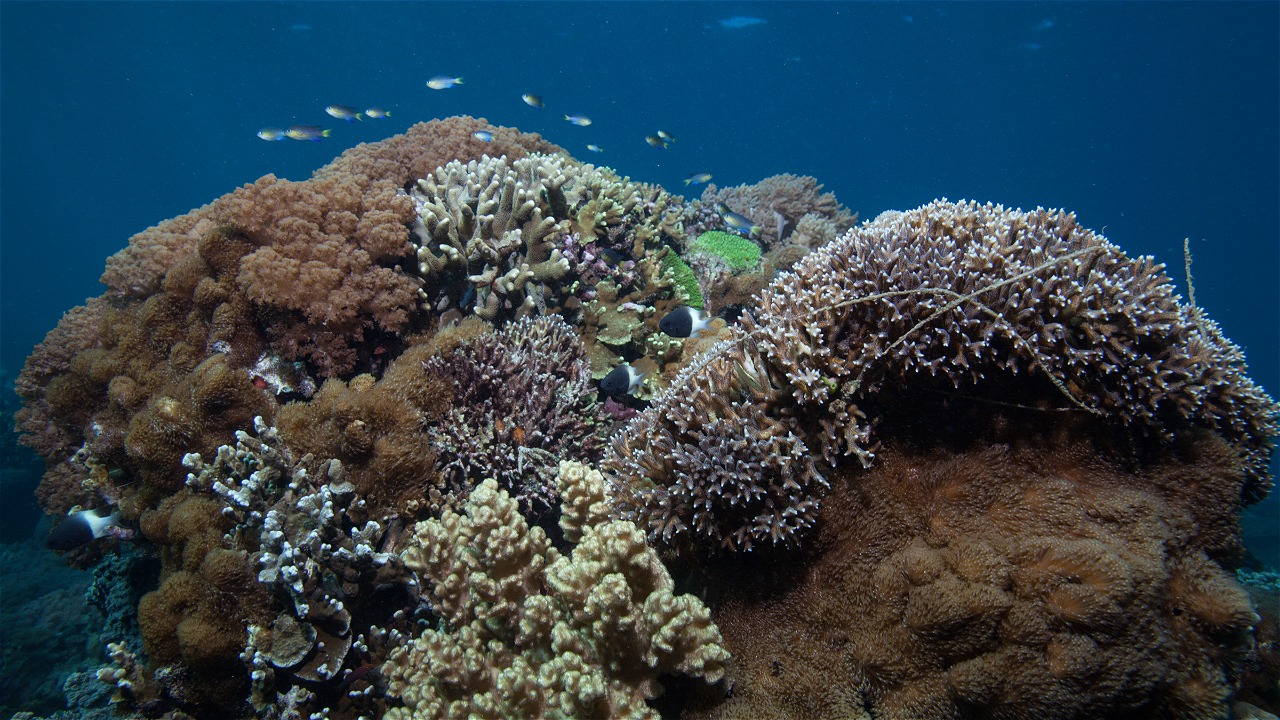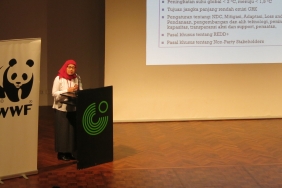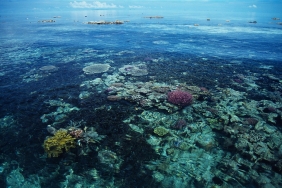IMPROVING REEF FISH FISHERIES IN ACEH WITH KUALA NETWORK AND WWF-INDONESIA
By: Marzuky (Leader Jaring KuALA, Secretary General Jaring Nusantara), Windy Rizki (Capture Fisheries Officer, WWF-Indonesia), and Achmad Mustofa (National Coordinator for Capture Fisheries, WWF-Indonesia)
Coastal ecosystems that are increasingly maintained and increased knowledge to choose good and sustainable fish are the benefits felt by Fauzan (26 Years), fishermen and reef fish collectors in Aceh Besar District and Banda Aceh City, after participating in the fisheries improvement program.
Activities that have been carried out by Fauzan and the fishermen with Jaring KuALA at this time can be seen in the form of recording fish when landing, stopping fishing activities with fishing gear that is not environmentally friendly and selective of fish caught, especially reef fish of a certain size. Such as, 700 grams for ketamba fish and grouper, and 500 grams for baronang fish.
During his 5 years as a longline fisherman, Fauzan joined the Teupin Ujung Pancu Lhok Peukan Bada fishing group. The group members, totaling 40 people, mostly use traditional boats measuring <5 GT. These boats are known as tep-tep in Acehnese or a type of small fiber boat.
In its activities, the fisheries improvement program is divided into two activities, namely the establishment of a Regional Marine Protected Area (MPA) under the name of the West Coast Aquatic Nature Reserve (SAP) area of Aceh Besar District and the Fisheries Improvement Program (FIP) or fisheries improvement program. Although Fauzan and other fishermen have benefited from the two programs, they are still faced with the challenge of marketing their catches at a stable price.
Fisheries Improvement Program with KuALA Network in Aceh
Fishermen who are active in the coastal and marine areas of Aceh come from Aceh Province and North Sumatra, namely Belawan and Sibolga. Initially, fishing activities in Aceh Besar District still used fishing gear that was not environmentally friendly, such as using bombs, tranquilizers, compressor aids, and several other non-selective fishing gear (trawlers and nets/trawls with very small eye sizes).
Therefore, Jaring KuALA under the coordination of the KuALA Secretariat involving several KuALA Aceh members, namely WCS Marine Program Aceh, Lamjabat Foundation, Ocean Diving Club (ODC) Faculty of Marine and Fisheries Syiah Kuala University as well as national networks, such as the Responsible Fisheries Network of the Archipelago (JarNus) and WWF- Indonesia conducted a fisheries improvement program through the activities of SAP Pesisir Barat and FIP.
The establishment of the West Coast SAP area in Aceh Besar District was coordinated by the Aceh Besar District MPA Establishment Facilitation Team assisted by several members of the KuALA. Evaluation of proposed area initiatives, identification and inventory of potential areas, reserve areas, establishing area management institutions and preparing management plans and zoning of conservation areas, are activities carried out in the fisheries improvement program.
The custom-based monitoring program of the West Coastal SAP of Aceh Besar District has begun to be implemented. A risk-based framework (RBF) has also been developed through a consultation process with Anthony Sisco Panggabean, an expert from the Marine Fisheries Research Center (BPPL), Nizam Zaman Ocean Fishing Port, Muara Baru, Jakarta. The RBF was developed to determine the appropriate form of reef fish fisheries management in the location of the group. Through this method, the level of threat of both target and non-target species affected and located in one ecosystem can be known. In addition, the impact of fisheries activities on ecosystems such as coral reefs can be known and mitigated through recommendations that arise from the results of the analysis. One of the recommendations arising from this RBF analysis is the setting of quotas (number of allowable catches / JTB) of fishing by fishermen per year to reduce overfishing. The determination of the JTB value itself requires the results of a more in-depth analysis using the harvest strategy method, which is planned to be carried out this year. These recommendations will then be discussed with relevant stakeholders in a workshop forum as a follow-up. All programs are managed under the supervision of the Panglima Laot Lhok Customary Law Institution in Aceh Besar District, which implements local Laot customary rules.
These activities will continue to be carried out by implementing programs contained in the West Coast SAP Management and Zoning Plan as well as the Reef Fish Species Management Regulation which includes regulating the use of environmentally friendly fishing gear, setting fishing sizes, and setting fishing quotas in Aceh Besar District. In addition, a good business scheme is being developed together with Fish n' Blues as the first eco-friendly seafood product retailer in Indonesia. This is done in an effort to facilitate fishers to market reef fish products as compensation or incentives for those who protect their own areas for the sustainability of fisheries in the future.





